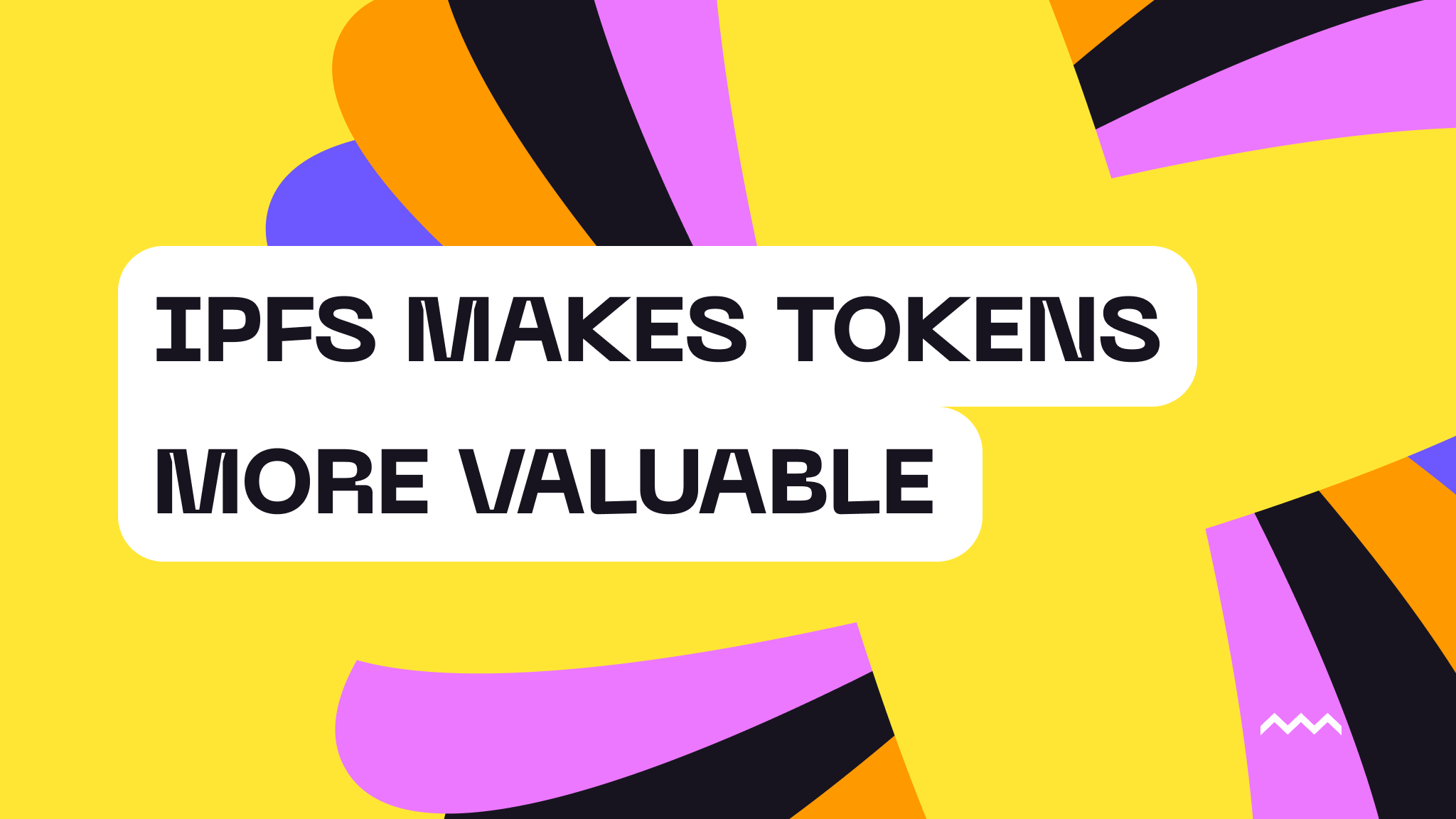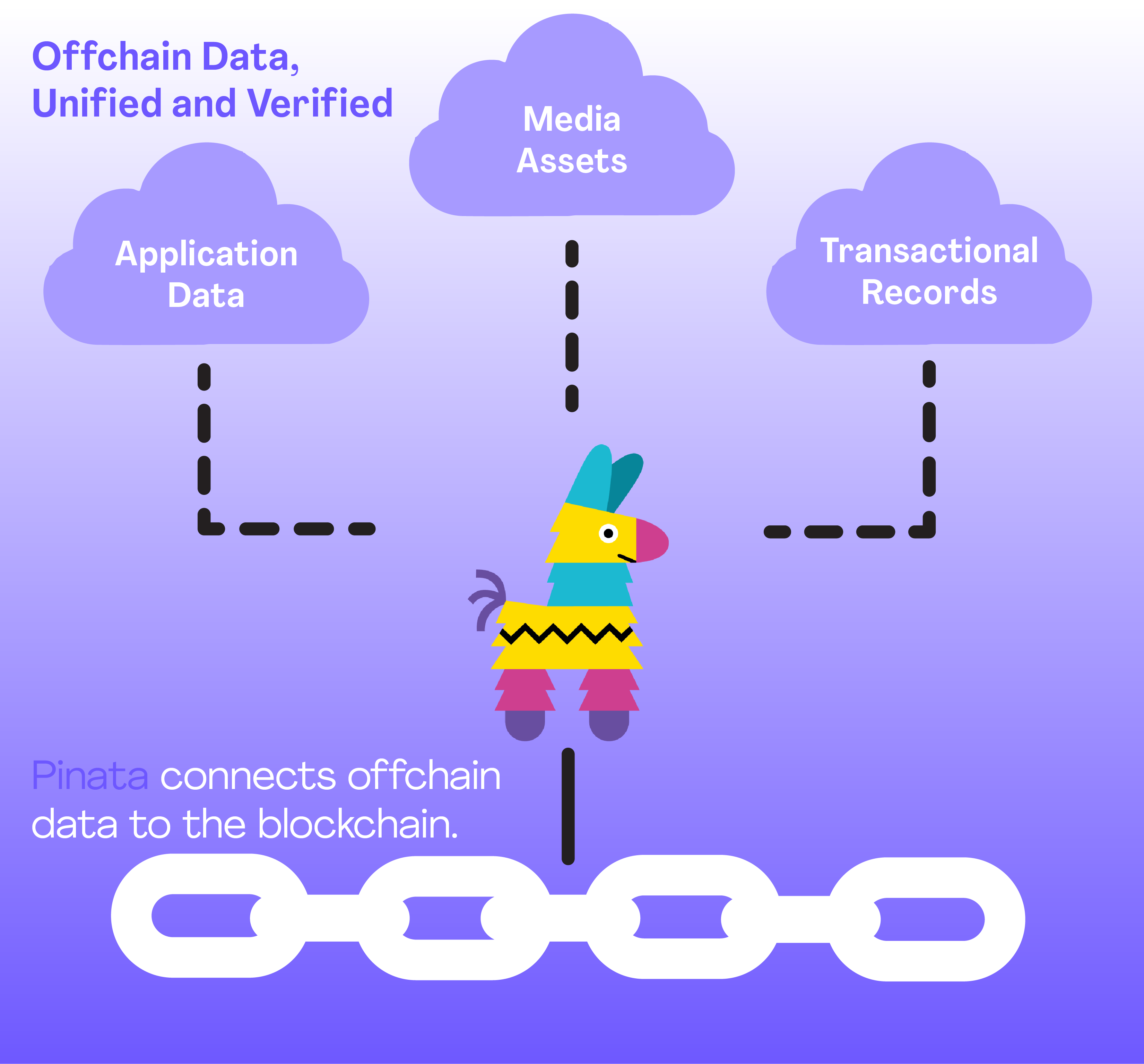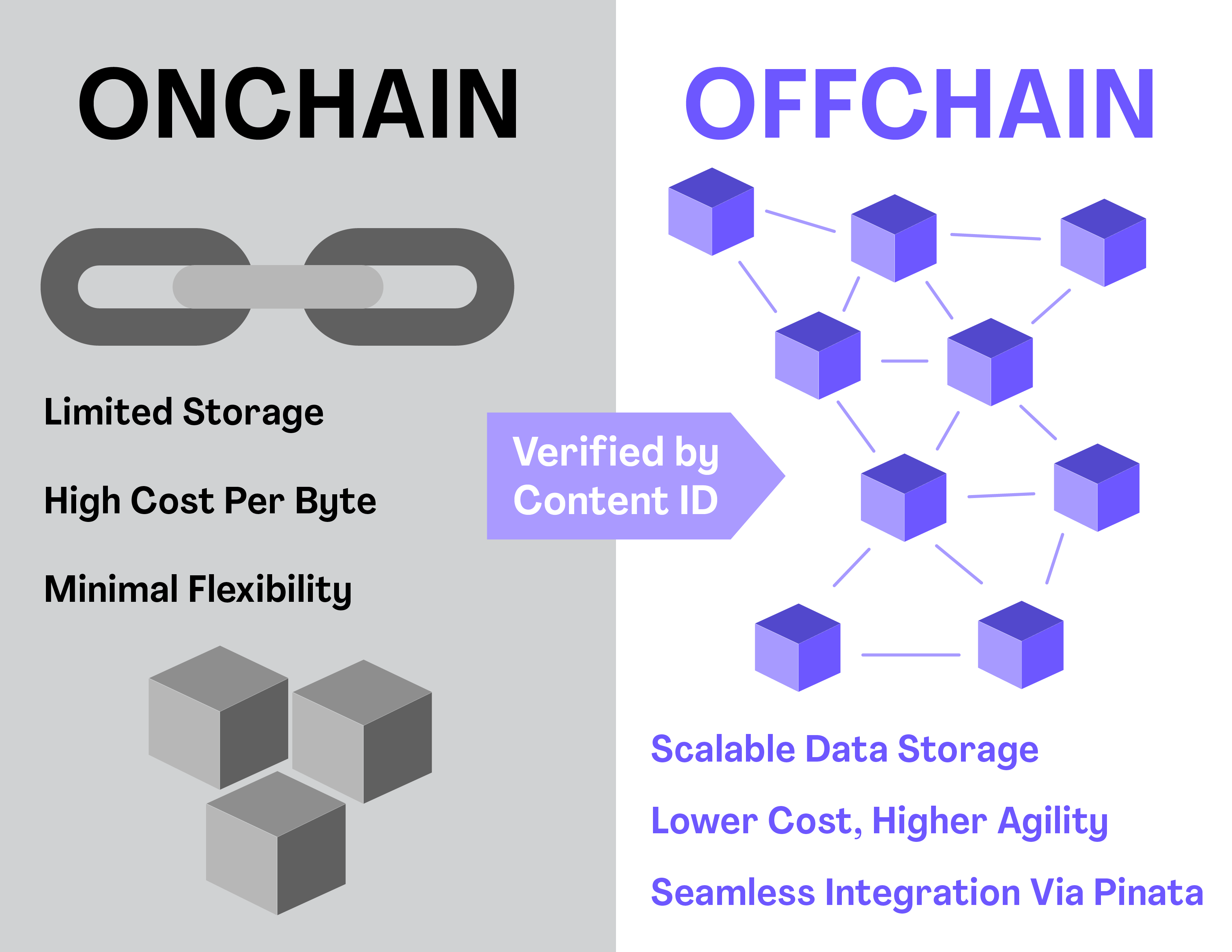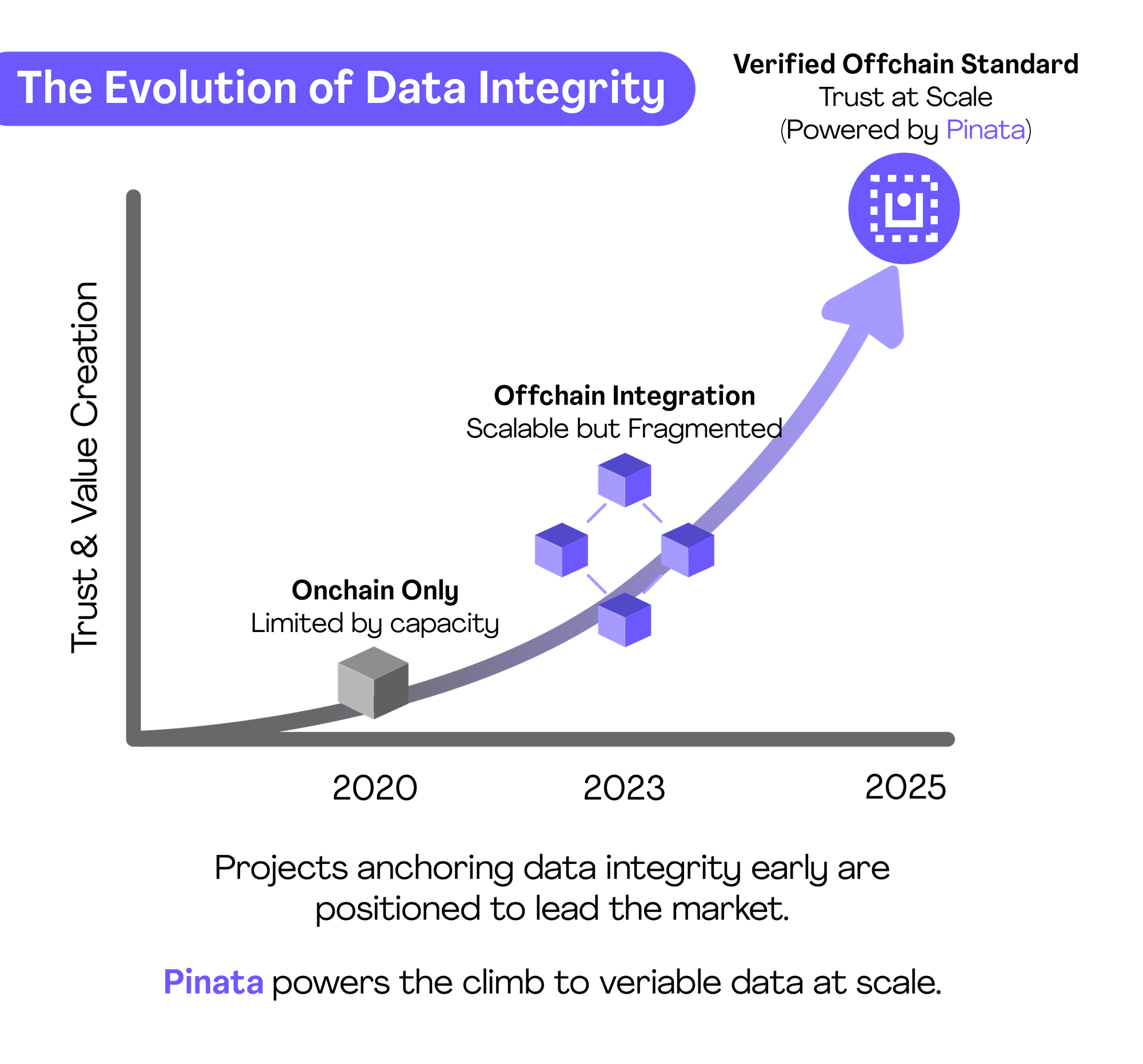Back to blog

IPFS Makes Tokens More Valuable
Every team that creates a token wants the same outcome: a higher price. Tokens that are trusted are worth more, and trust comes from proof. The way to prove data in crypto is IPFS.
IPFS turns offchain data into verifiable data through content identifiers (CIDs). A CID is a cryptographic fingerprint that guarantees a file, contract, or dataset is authentic. With IPFS, a token does not just reference offchain data, it proves it.
That proof makes the token more trusted, and that trust makes the token more valuable.
Fragmentation Destroys Value
The biggest problem in crypto is not centralization, it is fragmentation. Chains, wallets, tokens, and exchanges operate in silos. A blockchain can confirm a transaction, but it cannot confirm the data behind it.
When an NFT points to an image or a smart contract references a file, the chain cannot prove that the file is authentic. This is why NFTs disappear, links break, and exchanges fail to validate what they move.
Each failure destroys trust, and every loss of trust reduces token value.
Pinata solves this by making offchain data verifiable. CIDs connect tokens, apps, and exchanges to data they can prove is authentic. This creates durability, interoperability, and confidence, all of which make tokens more valuable.

Proof is the Differentiator
Crypto cannot scale without verifiable offchain data. Without proof, tokens and apps remain fragile. Investors, users, and regulators will not reward fragility.
IPFS provides proof through CIDs. Each piece of data becomes authenticated and portable across ecosystems. With Pinata, developers can generate and validate CIDs instantly, without running their own infrastructure. Proof becomes standard practice, not an optional feature.
Tokens with proof become more valuable. Tokens without proof remain risky, and risk pushes value down.
Trust Drives Value
Making offchain data verifiable is not just technical hygiene. It directly increases value.
- Higher Token Value: Proof attracts trust. Trust drives demand. Demand raises price.
- Reliable Development: Pinata has already solved uptime, bandwidth, and scale. Developers stop wasting time on fragile storage hacks and build products that last.
- Interoperability: CIDs let data flow across chains, wallets, and apps without losing authenticity. Assets become more liquid, and liquidity increases value.
- Future-Proofing: As AI, IoT, and machine-to-machine transactions grow, they will all depend on verifiable offchain data. Pinata is already the default layer for this future, making today’s tokens resilient to tomorrow’s shifts.
When tokens are backed by authenticated offchain data, they gain durability, interoperability, and trust. All three translate into higher value.

Offchain Data Rules the Future
Blockchains cannot hold the flood of data created by crypto. Most of it will always live offchain. The only way to make that data useful is to make it verifiable.
Pinata already powers this offchain layer at scale. By combining massive infrastructure with simple APIs, it makes offchain data authenticated from the start.
Developers can focus on products, knowing their tokens and applications are anchored in proof.

Early Movers Own the Market
The shift to verifiable offchain data is not optional. As the industry matures, proof will become the standard. The only question is who gets there first.
Projects that adopt IPFS today will set the benchmark for trust and value. Their tokens will be seen as safer, stronger, and worth more. Those that wait will scramble to catch up while their tokens lose ground.
IPFS makes tokens more valuable. Pinata makes IPFS usable. Builders who understand this will lead the next chapter of crypto.
Pinata makes all of this usable in production. It is the largest IPFS-based data platform, serving more than 2.7 billion files, 1.3 petabytes of data, and 11 billion monthly requests. Pinata gives developers an API that makes CIDs reliable and scalable, so every token can embed proof directly into its design.

